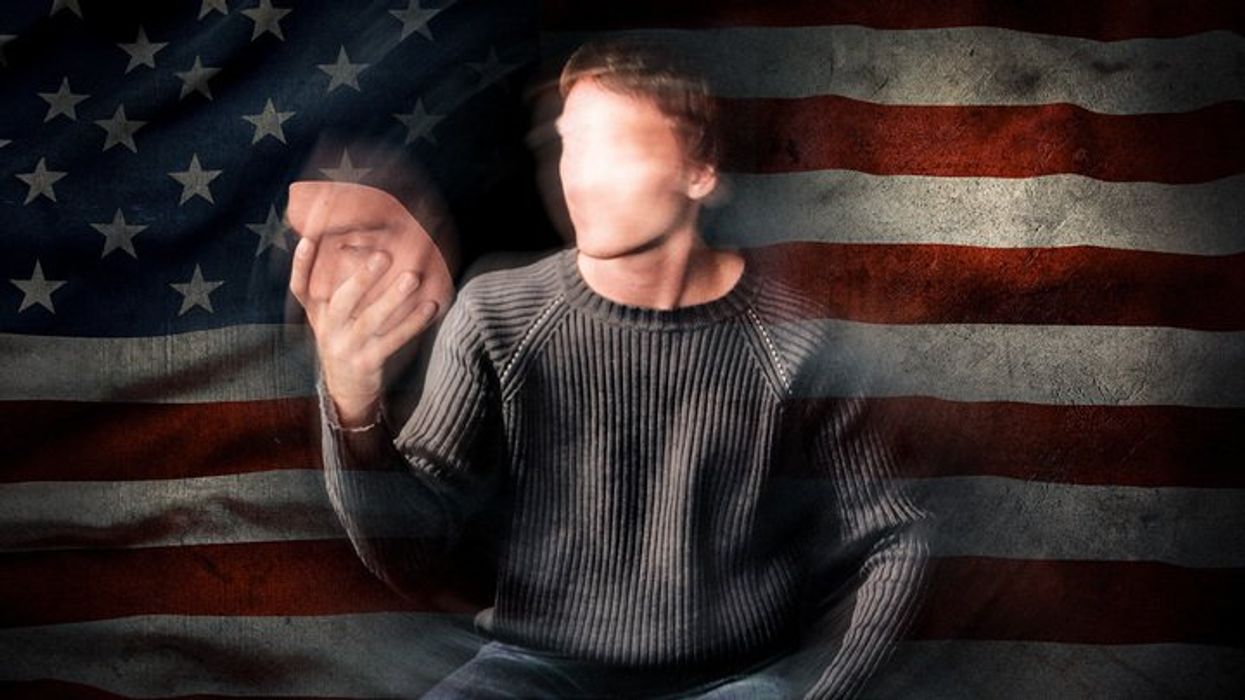
Blaze Media Illustration | Getty Images

Americans cannot begin to think about the well-being of our nation until we can see ourselves as a specific people with a particular history, culture, and way of being.
We live in an ideological age. Communism, fascism, classical liberalism, progressivism, democracy, capitalism — we fight wars over these terms even though some of these ideologies are dead and others have become meaningless.
Modern people think of ideology as something constructed before a society begins, something that defines a civilization from the very start, but this is not the case. For example, conservatives are commonly told that the Constitution defines America, but it was the people of America at the time of the founding who defined the Constitution. The founders knew this, which is why they explicitly stated that the Constitution could only govern a certain type of people.
The more universal an ideology attempts to be, the more inhuman it becomes.
Every people — every nation in the classical sense of the word — has a way of being natural to that group, which is reflected in how they order their society. When the nation is small and the population is homogeneous, few people need that way of being described to them; the order is organic and specific.
As nations grow and society scales up, they need a method to communicate their way of being to newcomers or outsiders. We call this assimilation. This can be successfully achieved if it is approached slowly, thoughtfully, and with great care.
But the more outsiders you take on and the faster you need to assimilate them, the less likely you are to be able to organically communicate this way of being. So instead, we get ideology, which is an abstract form of the nation’s way of being. It isn’t as good as the real thing, but if you need to assimilate a lot of people fast, it is the best tool for the job.
The problem with ideology is that it is artificial, unlike the way of being that develops in relation to a particular people with a specific culture and set of needs. Ideology is a tool to conform a random assortment of people to a rigid structure. If the people being assimilated are relatively similar, this can work. But the wider the circle gets, the more abstracted from reality the ideology must become until it has very little resemblance to the way people live their lives.
When we conform people to an ideology, we necessarily make them less human, forcing their way of being into an artificial mold that distorts or complexly destroys the natural order. The more universal an ideology attempts to be, the more inhuman it becomes.
We have stretched human organization well beyond its natural limits with globe-spanning empires, and these empires can only be governed by ideologies. These ideologies have become so disconnected from actual human well-being that they damage the people they rule over. The entire globe was never meant to be ruled in one way, to share one culture or way of being. When we try to force these artificial ideologies onto real human beings whom they were never meant to govern, tragedy follows.
This is why we spend all our time in American politics screaming past each other. Everyone is battling for ideological control; no one is thinking about the good of a specific people, the people of this nation. For the left it is blasphemy to even think of Americans as a specific people. Progressives treat nationalism as a synonym for racism, which we all know is the worst sin any human has ever committed. We are terrified to even define what the word nation means, so the only thing left to do is argue about abstract ideology.
One of the instigating factors in this frustrating cycle is the democratic mechanism, which encourages coalitions of ethnic blocs to organize under ideological banners. In some countries, the racial politics are more explicit, but in the United States, the coalitions tend to form from a strange mix of class, religion, ethnicity, and regional identity, so ideology becomes the only glue abstract enough to hold these parties together. Power is won by dividing and dolling out spoils because there is no incentive to think about and rule for the good of the whole.
Another factor driving our ideological obsession is empire. The United States cannot exist as a people if we must scale our civilization up to the size of a global hegemon. Our economic and political system relies on our ability to influence trade and diplomacy across the globe at a moment’s notice. Losing a political battle domestically means losing control of the entire global engine of commerce and culture.
Democrats are treating Donald Trump as an existential crisis for a reason — they understand what is at stake. Each election stops being a conversation about what is best for the people of the United States and becomes a battle over which ideology will quite literally rule the world.
The problems our nation faces are great, and we cannot solve them by arguing over the threadbare remnants of abstract and outdated ideologies. To address the problems before us, we must ask what is good for our families and our neighbors, not what is good for our preferred form of global governance.
Americans cannot begin to think about the well-being of our nation until we can see ourselves as a specific people with a particular history, culture, and way of being. That is a monumental task of restoration for any civilization to undertake, but it will be critical if we are to move beyond this age of ideology.
Auron MacIntyre
BlazeTV Host